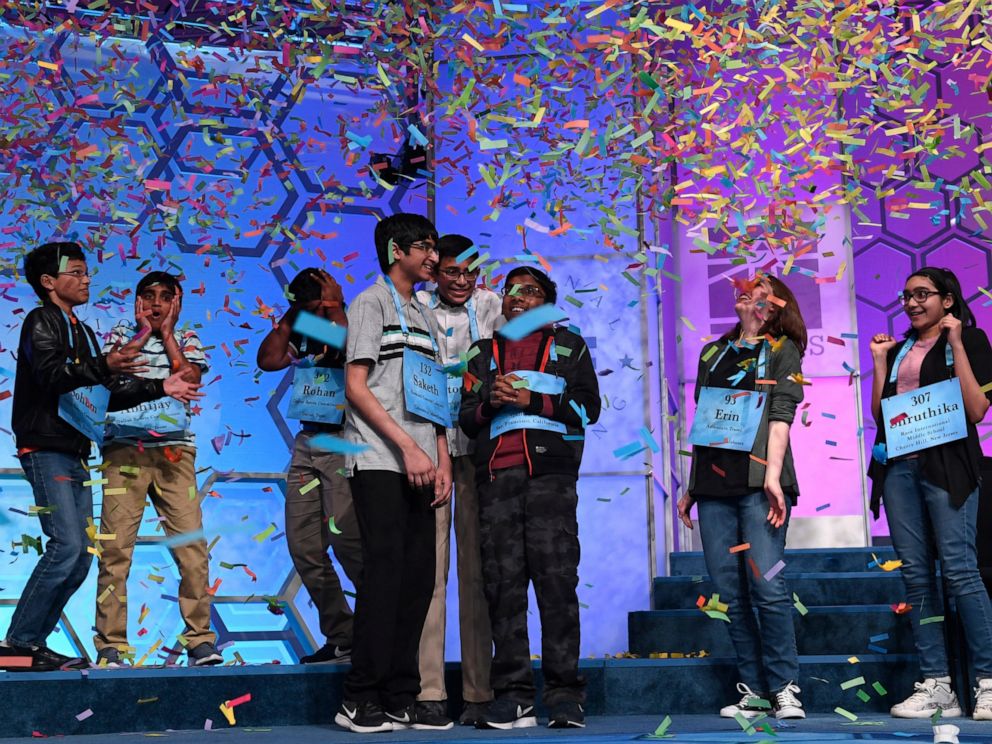It’s one of the few times of the year that your academically-inclined youngster can turn on ESPN and see kids like them celebrated like sports stars. The Scripps National Spelling Bee has been running for over 90 years with no signs of stopping, and children around the country dream of taking home the coveted trophy.
The 2019 spelling bee, however, was something truly extraordinary. For the first time in history, eight kids share the title of co-champion. How? The judges simply ran out of words! For an elimination-style competition to work, participants have to be, well, eliminated, and these kids were just too smart to get any words wrong.
So how can your favorite sesquipedalian logophiles become future National Spelling Bee champions? The honest answer is, a lot of hard work. Here are some secrets and tips passed down from former National Spelling Bee winners that can help your students have an extra edge against the competition.
Practice writing the word on your hand.
It can be easier to visualize the spelling of a word if you practice writing it down—but of course, that’s why the bee doesn’t allow participants to use a pen and paper. Tracing the letters on your hand with a finger might be almost as helpful!
When in doubt, turn to software!
The computer program SpellPundit, which came out last year, lets kids practice spelling by using words from previous National Spelling Bee word lists. According to SpellPundit themselves, this program was used by six of this year’s eight co-champions.
Get used to performing for an audience!
You might be the best speller in the universe but still freeze up when facing an audience and a camera crew. Get some of the jitters out by practicing in front of real people—maybe friends or family. When you’re on stage for the real competition, just pretend that the sea of faces in front of you are all friendly ones. Taking classes like dance or theatre might help soothe the stage fright, too.
Get friendly with your dictionary.
We hate to say it, but even in the age of hand-held technology, an old-fashioned dictionary is a speller’s best friend. How else to get definitions, pronunciation, origins, and examples all in one place? Some past champions say that they even bring their dictionaries with them on family vacations!
Expand your vocabulary.
Words are much easier to spell if you recognize them, which means that the most important asset for a spelling bee champion is a big vocabulary! Many champions study by using SAT practice books, but there are much more fun ways to learn new words, too. There are books and stories published for readers of all ages that define word meanings in the margins. After all, you’re more likely to know how to use a word if it’s used in context—especially if that context is exciting and fun to read! SPIDER Magazine, for ages 6-9, is populated by a cast of friendly ‘bug’ characters that define vocabulary terms while having some adventures of their own at the bottom of each page.
Don’t be afraid to ask for help!
Know your rights! Spelling bee participants are allowed to ask for word origins, definitions, repetitions, or sometimes even how to use it in a sentence. Just don’t try to ask how it’s spelled. That won’t fly at ANY kind of spelling bee.
Know a foreign language… or twelve.
If you’ve ever watched the Scripps National Spelling Bee on television, you’ll remember that some of those words don’t sound exactly, well, English. That’s because a lot of the trickiest words are taken from other languages. If you know a little bit of another language, that can give you the leg up over some of the competition. Even better, learn just a few words or sentences from a variety of languages. You don’t have to become a fluent speaker overnight, but knowing that French has an awful lot of silent letters or that German vowels are always pronounced the same way can be a big help!
Don’t shirk studying science!
You might think that Language Arts and Science are total opposites, but remember what we said about foreign languages up there? Words derived from the Greek and Latin crop up all the time in the National Spelling Bee. Some of the trickiest words in this year’s bee include “Tettigoniid,” the scientific name of a species of grasshopper, and “hieracium,” a type of plant. Pretty obscure, right? Reading just a little bit about scientific topics every day can really help polish your spelling skills. STEM-focused magazines like ASK and MUSE are perfect for bite-size learning.
Has anyone you know ever competed in the Scripps National Spelling Bee? What was their strategy?



